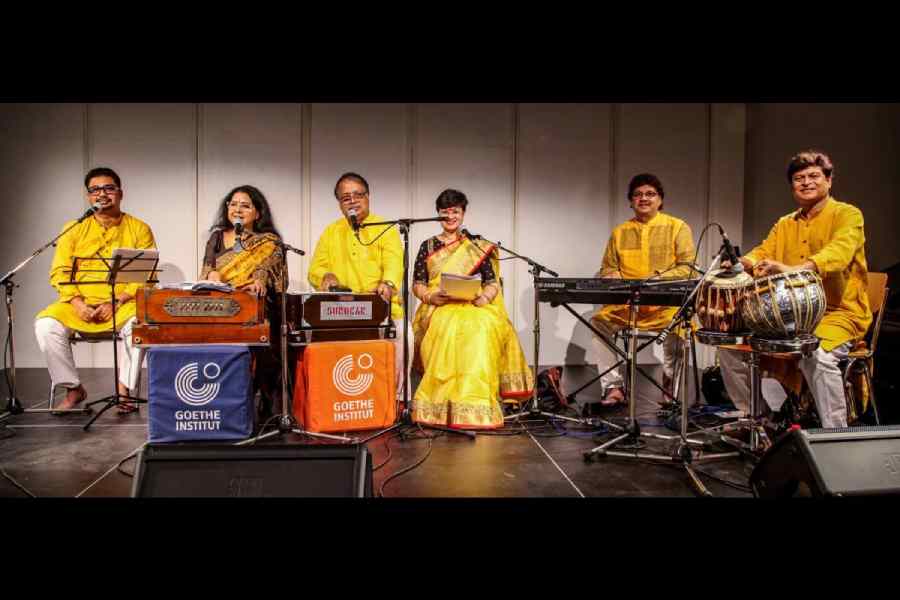Subrata Mukherjee’s flourish in a popular Beethoven piece, followed by the strains of “E monihar amaye nahi saaje” on the piano, perfectly flagged off A Symphony of Cultures — Rabindranath Tagore and Germany at Goethe-Institut/Max Mueller Bhavan recently. Mukherjee highlighted the diaphanous textures of the piece and his performance sent ripples of excitement through the intimate gathering. Throughout the evening, he maintained a restrained approach, giving the singers and the elocutors space.
The evening was conceptualised and scripted by Korak Basu who read portions from the lyrical drama, Chitra, along with Ipsita Ganguly, as well as Tagore’s lectures in Berlin, Hamburg and Heidelberg, weaving them into the session. The songs by Rinadolan Bandopadhyay and Pradip Dutta were only half-hearted attempts to get into the depth and the sensitivity of the exchange. Although both singers have well-rounded voices, it did not make the songs better or give them a sharp edge. Bandopadhyay’s “Amare tumi ashesh korecho” and Dutta’s “Gaane gaane tabo bandhano” (the presentation witnessed a slight hiccup with the microphone) were their best offerings. Bandopadhyay faulted in the initial rhythm of “Roy je kangal” and did not sound in sync with Mukherjee’s keyboard. Dutta, whose baritone is always pleasant, had a bit
of a murmur in the tail notes and failed to connect with the musical arrangements. To his credit, Anjan Bandopadhyay provided layered support on the percussion but the collaborations were not always interwoven.
It was left to Basu and Ganguly to make meaningful connections, which, while they were not rushed, were of burgeoning intensity, especially during the dialogues of Chitra. Astrid Wege, the director of the Goethe Institut, and Sneha Banerjee read the German versions of “Amare tumi ashesh korecho” and “Protidin ami”, respectively, in their gentle styles.










